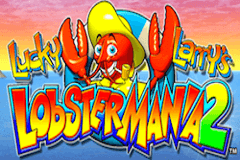Diamonds Casino Games
From Candy Crush to Bejeweled, from Columns to Gems with Friends, one of the most popular forms of casual, laid-back gameplay in video games has been the Match 3 game. These puzzle games have featured many different ideas and gameplay elements over the years, but one thing has united them all: the key move is to match three of the same items in a row, causing them to disappear, getting the player closer to whatever the goal is.
Given how ubiquitous this genre has been over the years, it only made sense for Spigo to develop a Match 3 title for inclusion in their suite of skill games. Their answer was Diamonds, a beautiful implementation that features a wide variety of game types – all of which promise you the chance to win cash if you’re good enough to solve some devilish puzzles.
Diamond in the Rough
At the start of a round of Diamonds, players can choose to compete at one of three difficulty levels (easy, medium, or hard). You may also choose to play for real money, or to play just for fun – perfect if you want to learn what this is all about before you gamble on it.
When you start your game, you’ll find that yourself staring at a screen that includes a whole lot of diamonds. These will come in various colors, each of which also has a unique shape in order to make them easier to differentiate: orange triangles, blue pentagons, and green octagons, for instance.
The basic gameplay element here is very simple. Players can drag any one diamond they want one square up, down, left or right in order to swap it with the diamond in the adjoining square. However, this move can only be made if it will result in one or more combinations of three-in-a-row of the same color, either horizontally or vertically. When this occurs, all of the gems that take part in these matches will disappear, causing gems above them to fall down and new ones to fall into place from above the screen. Should these movements cause new matches to occur, more will disappear in turn; this can continue happening indefinitely, until no matches are made.
While those combinations are rather simple, there are also some special gems that can be created under certain conditions. If you ever make a match of four in a row, you will receive a striped diamond, which looks just like one of the regular ones of the same color – only with added stripes. When this striped diamond is used as part of a match, it will clear out an entire row or column of gems, destroying them all.
Next up is the bomb diamond, which features a thick white line bordering the entire gem. You’ll receive a bomb if you make two connected matches of the same color at the same time, such as by creating a T shape with five gems. When a bomb is included in a match, it will explode, destroying the diamonds in the eight spaces surrounding it. But the bomb won’t disappear just yet; one everything comes to rest again, the bomb will explode a second time, this time leaving the game along with all of its neighbors.
If you match five or more of the same gem in a row, you’ll create a rainbow diamond – one of the most powerful resources at your disposal. At any time, you may swap the rainbow with any colored diamond. When you do so, you’ll cause all of that color to be removed from the board, with all special gems of that color being activated immediately.
Some special combinations are possible that will amplify the effects of these powerful stones. For instance, two striped stones in a combination will destroy both a vertical and a horizontal line. Combine a bomb and a stripe, and you’ll take out three vertical and horizontal rows and columns in a single move. Other combinations include:
- Striped + Rainbow: All gems of the striped color become striped, then are simultaneously activated, clearing out one row or column each.
- Two Bombs: Instead of a regular explosion, the two bombs will take out a 5x5 area of stones; as with a regular bomb, this will happen twice, the second explosion coming when the screen has come to rest.
- Bomb + Rainbow: As normal, the rainbow will destroy all gems of the bomb’s color. However, once the screen comes to rest, the rainbow will then destroy all diamonds of a randomly chosen color again.
- Two Rainbows: All diamonds on screen are destroyed, including blockers.
Speaking of blockers, these are special elements that are designed to increase the difficulty of a given level. These items do not move during the normal course of play and cannot be used as part of a match.
For instance, you may find that some of your gems are hidden behind a sheet of ice. This will not prevent that gem from being used in a combination, but it will stop it from being removed. Instead, the ice will go away the first time that diamond is used as part of a match. An adjoining match or a special effect will also remove the ice.
You may also find rocks strewn about some stages. These elements never move, and can have several layers that must be removed one at a time in order to clear them. A layer of rock will be removed either by making matches next to the rocks, or from the effects of a special diamond.
Different Levels, Different Goals
You may have noticed that we haven’t actually discussed how you win at this game just yet. That’s because your goals will vary depending on the level that you are randomly assigned each time you play. This can be a bit frustrating if you like certain game types more than others, but it does also serve to add a lot of replay value.
In total, there are three basic types of levels, each with a different winning condition. The possibilities are as follows:
- Board Levels: On these screens, you’ll see that some spaces have wooden boards on them underneath the gems. In order to clear these boards, you must make matches using the stones that sit on their spaces; of course, special events can also be used to get rid of the boards. A single space may have several layers of boards on it, making it more challenging to remove them all.
- Task Levels: These levels ask you to complete a specific task, which is noted on the right side of the screen next to the main play area. In most cases, you’ll need to get rid of a certain number of gems: sometimes normal ones, but potentially also specials or even combinations of specials in order to claim a win.
- Fruit Levels: Sometimes, you’ll find that there are indestructible fruit icons appearing on your screen. In these fruit levels, you’ll need to get rid of a certain number of fruits, which is normally done by getting them to fall off the bottom of the screen. While fruit can be swapped with diamonds, they cannot be destroyed by anything, even special features.
The layout of these levels can also vary tremendously. Sometimes, a regular square or rectangular layout is present, but other shapes are common as well, which can make it tricky to get into all of the nooks and crannies where elements of your goal are found. Some levels also have funnels that keep many parts of the screen separated for some or most of the screen, making it harder to get your pieces exactly where you want them.
While almost any goal would be achievable if you had an unlimited amount of time, the challenge comes in the constraints that are placed upon you in each round. Players are given only a limited number of moves to finish; if they do not reach the goal in that number of moves, they will lose. Any swap of pieces is considered a move; all of the cascading effects that arise from that swap are considered part of that same play, and do not tick down the move counter.
If you do reach your goal within the move limit, then you’ll win immediately. If you were playing for real money stakes, this means you’ll also receive a payout as a reward. The pay table in this game is as follows:
- Easy: 1.4x
- Medium: 2.5x
- Hard: 4x
Skill Matters, But Big House Edge Reported
Given that Diamonds is a proprietary game with an infinite number of possible combinations, it seems virtually impossible to say what the exact percentage of winnable games is at each difficulty level. It’s also true that this genre of gaming has a rather high skill ceiling, so individual players will have a lot of variation in their solving rates – meaning that you may come up way short of the theoretical maximums possible in this game.
Without any real numbers to go on, the best we can do is use Spigo’s own estimates. Unlike in some of their games, however, the numbers they use are not particularly optimistic for the player. They assume that the chance of solving is just 60% on the easy level, 33% at medium, and 20% on hard. We’re inclined to trust these numbers as being at least reasonable close; after all, Spigo did create the game. The result is a rather big house edge: the return to player ranges from a high of just 84% on easy to a low of 80% on hard.
As for strategic advice: we don’t have much. But in a general sense, it is important to take your time and carefully consider the consequences of each swap you make. There’s no time limit, but your move limit is strict, so you don’t want to be wasting time with matches that don’t move you closer to your goals. No matter what you do, there will be some luck involved – you never know what new pieces are going to falls from above – but by targeting specials and carefully planning combinations, you’ll find that your win percentage can definitely improve over time.
Worth Playing, Even if Just for Fun
Diamonds is a very attractive creation, and Spigo deserves a lot of credit for creating a fun, engaging, and challenging version of the classic Match 3 formula. We’ve played this game for hours in free play mode, and it never seems to get old. There’s something about this style of play that remains addictive – though we should already know that, given how many of these games have been wildly successful over the past two decades.
Given the big house edge, we can’t recommend playing this regularly for real money. That’s not to say you can’t challenge yourself with an occasional bet; we think it really ratchets up the tension when even a tiny amount of money is on the line, so by all means, go for it. But chances are that you’ll never be able to turn a profit here, which means that this is one title we recommend just for fun – even if that “fun” includes throwing down the occasional real money bet to spice things up.











































